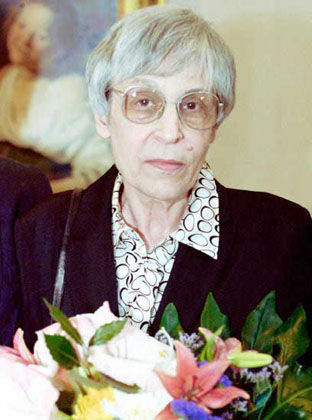| |
Между
Сциллой и Харибдой
Быть поэтессой
в России – труднее, чем быть поэтом: единица женской силы в русской поэзии –
1 ахмацвет.
Ходим в люльке с погремушкой,
Расцветаем, увядаем.
Между Арктикой и Кушкой,
Между Польшей и Китаем.
Покидаем с вечным всхлипом
Облак над лицейским прудом.
Между Лиром и Эдипом,
Между Цезарем и Брутом.
Сохраняем здравый разум,
Маслим свет над фолиантом.
Строим ясли голым фразам,
Между Пушкиным и Дантом.
Поднося фонарь к репризам,
Связь находим колоссальной
Между Блоком и Хафизом,
Между Музой и Кассандрой.
И дыша гипербореем,
Проплываем каравеллой
Между Женей и Андреем,
Между Беллой
и Новеллой.
Но кровавою корридой
Угрожает путь старинный
Между Сциллой и Харибдой,
Между Анной и Мариной.
Между Сциллой и Харибдой
Между Анной и Мариной -
Кто проглочен был пучиной
Тот и выплюнут пучиной.
Стало следствие причиной
Объясняю образ странный
Кто проглочен был Мариной
Тот и выплюнут был Анной.
Золотою серединой
Отродясь не обладаем,
Между Анной и Мариной,
Между Польшей и Китаем.
И над бездною родимой
Уж не знамо, как летаем,
Между Анной и Мариной
Между Польшей и Китаем.
|
Between
Scylla and Charybdis
To be a woman poet in Russia is harder than to
be a male poet: the unit of female power in Russian poetry is one akhmatsvet
With a rattle we are walking
Round the cradle, flowering,
fading.
Between the Arctic and Turkmenia,
Between the Polish lands and China.
With a deep sob we abandon
Clouds above the Lycée puddle –
Between Oedipus and Lear,
Between Julius and Brutus.
We keep our reason healthy,
Dim the light above the folio,
Make a crib for naked phrases,
Between Pushkin and Alighieri.
Highlighting the reprises,
We find a vast connection
Between Blok and Persian Hafiz
Between the Muse and Cassandra.
And breathing, hyperborean,
We sail through, caravel-like,
Between Zhenya and Andrei,
Between Bella and Novella.
But like a gory bullfight,
The ancient path is threatening,
Between Scylla and Charybdis,
Between Anna and Marina.
Between Scylla and Charybdis,
Between Anna and Marina,
He whom the gulf has swallowed,
Was spat out by it likewise.
Consequences became a cause.
I'll explain this odd idea:
He whom Marina swallowed,
Was spat out then by Anna.
In all our born days, never
Did we command the Golden Mean –
Between Anna and Marina.
Between the Polish lands and China.
And above our native chasm -
Who knows how! – look, we are
flying
Between Anna and Marina.
Between the Polish lands and China.
Note:
“Akhmatsvet”, a compound,
derived from the names of Anna Akhmatova (the sound “akh” recalls the
outbreath) (1889-1966) and of Marina Tsvetaeva (1892 – 1941). Zhenya,
Andrei, Bella, Novella are Evgeny (Zhenia) Yevtushenko (b. 1933), Andrei
Voznesnesky (b.1933), Bella Akhmadulina (b. 1937) and Novella Matveeva (b.
1934), popular public poets of the generation that includes Morits.
Translated by Daniel Weissbort
|
